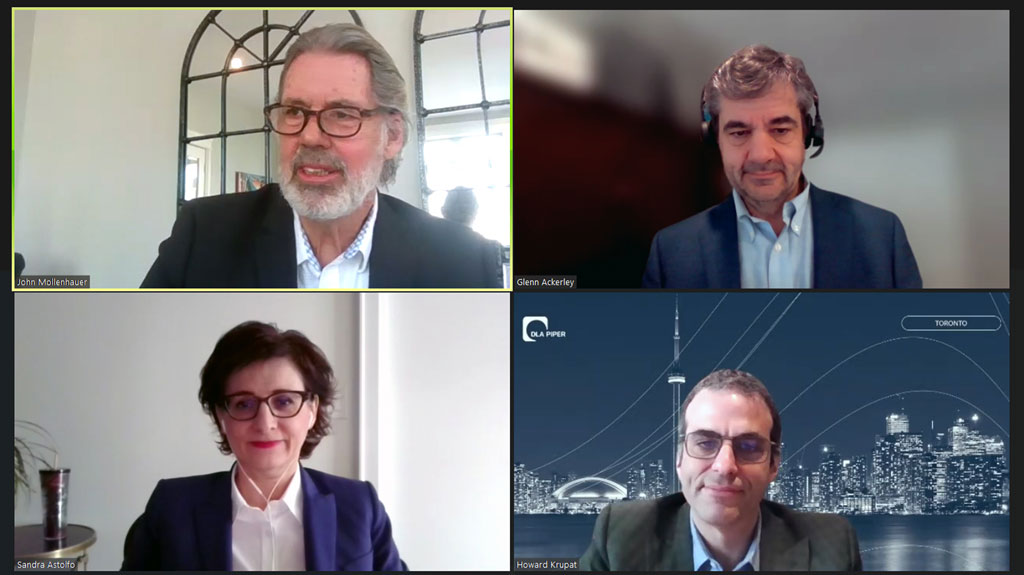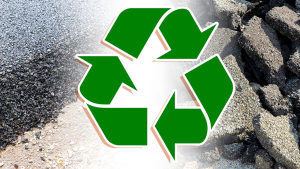Ontario constructors have been slow to fully embrace the adjudication system introduced by the new Construction Act two-and-a-half years ago, but that may be about to change.
The Toronto Construction Association (TCA) hosted a panel of Construction Act specialists March 17 to discuss its impacts on the industry. With TCA CEO John Mollenhauer serving as moderator, the panel of DLA Piper partner Howard Krupat, WeirFoulds partners Sandra Astolfo and Glenn Ackerley reviewed the act’s modernization provisions, which came into effect July 1, 2018, and the prompt payment and adjudication measures that became law Oct. 1, 2019.
It was known there would be a transition period as contracts entered into under the old Construction Lien Act were grandfathered through the old system. But the panellists raised the issue of why so few contractors and other parties have adopted adjudication, which when introduced was described as “rough justice” and “quick and dirty.”
Krupat said adjudication “represents the teeth for prompt payment.”
“The natural question that flows from that is, what can I do if someone doesn’t comply? How do I enforce this whole regime?” asked Krupat.
“The principal answer to that is adjudication. And that’s why education is really important. And that’s why I think you need to become familiar with the adjudication.”
Adjudication is available for disputes relating to matters prescribed by the statute or the regulations such as valuation of services or materials, payments under the contract, set-off claims and holdback, and other matters agreed upon by the contracting parties, Krupat explained. The disputing parties can agree on an adjudicator or select one from the roster of the authorized nominating authority, ADR Chambers, which has set up Ontario Dispute Adjudication for Construction Contracts (ODACC).
ODACC reported in its second annual report at the end of its 2021 fiscal year, ending last July, that 50 adjudications had been commenced; 29 adjudications that started in 2021 resulted in a determination, plus five from 2020; eight adjudications were terminated due to settlement; and the average amount required to be paid was $26,700.
The largest average claim came from the industrial sector, where three adjudications were initiated averaging out at $1,246,000. Krupat said fees for an adjudicator can run as low as $800 and there is a recommended flat fee of $3,000.
Prompted by a question from the virtual audience, Krupat offered his views on why adjudication was off to a slow start.
“A lot of us speculate as to why there hasn’t been greater uptake yet,” he said. “My personal view is that there are a multitude of reasons, one of which was that adjudication and prompt payment were scheduled to ramp up right when the pandemic started. That’s when it was really going to kick in.”
Krupat said the industry has done a good job of promoting the Construction Act and adjudication through webinars and presentations at multiple industry events, but adjudication remains somewhat of an unfamiliar process to the sector including construction lawyers.
“We’re a conservative group, both in the industry and the legal profession,” said Krupat. “I think people want to see how it plays out and how effective it is before they’re willing to jump in.”
“Is there more that can be done? I think that as people hear about it more, as the numbers go up a little bit more, and people see that it works, I’m guessing there’ll be sort of a sudden jump.”
Mollenhauer said there is lots of discussion in the sector as contractors become familiar with the legislation.
“Contractors are having a better, more constructive dialogue now with the parties they have contracted with than has perhaps existed for a very long time,” he commented.
“I think as we become familiar with it we will perhaps rely on the new process to resolve disputes.”
That acceleration of adoption might be happening right now, said Ackerley. The mindset of parties hesitating to jump into adjudication for fear of harming a relationship will be overcome over time, he suggested, as they realize an adjudication is an expedient way to get over an impasse and get paid.
“From personal experience, I am seeing many more adjudications starting to come in. I dealt with three of them in the last two weeks,” he said.
Krupat suggested as adjudication becomes more culturally accepted, parties will learn to use it more efficiently. Currently, he has seen a strategy of parties aggregating issues with “big expensive arbitrations” at the end of the project.
“What adjudication allows is that when an issue arises you deal with it immediately,” he said, adding it leads to a healthier relationship as opposed to when a project ends in a “messy arbitration or litigation process.”
Follow the author on Twitter @DonWall_DCN.










we are already experiencing a dispute situation with our window sub trade. please advise about how adjudication works